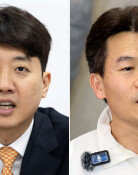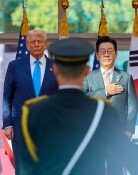U.S. State Department to Accept Two-week Delay of the Six-party Talks
U.S. State Department to Accept Two-week Delay of the Six-party Talks
Posted August. 31, 2005 06:49,
The U.S. has agreed on August 29 to the resumption of the six-party talks the week of September 12, a unilateral decision made by North Korea.
U.S. State Department spokesman Sean McCormack said in a daily new briefing on the same day, We`re prepared to come back on the week of September 12. He also said, The Chinese government is working bilaterally with the North Koreans as well as other states to set a date.
In regard to North Koreas two complaints that delayed the resumption of the talks for two weeks - Ulji Focus Lens, a joint South Korea-U.S. military exercise and Washington`s appointment of a special envoy on North Korea`s human rights issues- he said, This (the military exercise) is an annual defensive exercise involving the U.S. and South Korean forces that poses no threat to the North, and that the appointment is something that was mandated by U.S. law.
Earlier, in an unusual move, the communist state announced its decision not to return to the negotiation table and then reversed the decision the next day, announcing that it would be prepared to return on the week of September 12. In the third round of the talks held in June last year, North Korea agreed to open a fourth round of negotiations by September 2004, and then changed its mind, putting the talks in a 13-month recess.
It seems that the North was quick to notify its date of return in order to express its willingness not to ignore the frame of the multilateral talks in itself.
North Korea also could not help but be worried about a hard-line stance of the U.S. when the six-party talks continue its recess longer. The regime might calculate that it would be in its favor to sit at the negotiation table when doves like Ambassador Christopher Hill, the U.S. Assistant Secretary of State-designate for East Asian and Pacific Affairs, are leading the talks. It is well aware that those with soft stances including Hill have had a hard time in persuading hard-liners to continue the talks.
Chinas persuasion and tacit pressure also seemed to play a part because the Norths decision was announced right after Chinese Vice Foreign Minister Wu Dawei had made a visit to Pyongyang to discuss when to resume the talks. Experts analyzed that North Korea most fears that China, its biggest donor, might turn against it.
However, a resumption of the talks does not mean that North Korea and the U.S. have reached an agreement on the biggest dissenting points: Norths right to peaceful use of nuclear power and the extent of nuclear dismantlement. That makes it difficult to predict whether a breakthrough for the resolution of the North Korean nuclear issue will come shortly even though the talks will resume.
Jong-Koo Yoon Seung-Ryun Kim jkmas@donga.com srkim@donga.com







